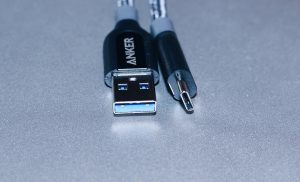Bidding Begins for FSS Spectrum
Rachael Grant
January 28, 2016
The Federal Communications Commission are accepting bids for their airspace in the longed for 700 MHz band. The auction is expected to generate up to $15 billion in government revenue, with companies such as Google and Cablevision vying for the airwaves.
The FCC is selling the spectrum in five blocks, two of 12 MHz, one of 22, one block linked with public safety works, and an unpaired 6 MHz block.
Gartner analyst Tole Hart, says that Google is likely to battle with competitors telcos Verizon and AT&T as they bid for the most sought after 22 MHz block in what Hart considers ‘the last major spectrum auction for the foreseeable future.’
Hart says that this coveted block plays into the ‘core competency’ of improving data transfer speeds of networks, and will be where competitors drop the bulk of their money at the auction, the prediction being that Verizon will outbid Google. The reason for this, Hart continues, is that for Verizon, the spectrum would be pivotal in the company’s current plans for upgrading their networks.
Under the rules of the auction, all bidders are anonymous, so the public can only see the sum of the bid. As the first round of bidding closes, the 22 MHz package drew in roughly $1 billion alone.
The most bidding was seen between small and medium-sized companies, as they battled for licenses in the 12 MHz blocks. One group put in a bid for the public safety linked spectrum, although according to the analyst firm Stifel, Nicolaus, & Co, who also called Verzizon as the highest bidder of the 22 MHz block, it remains to be seen if this is a serious bid, or whether the group placed the bid to maintain eligibility for the rest of the auction.
Since Frontline dropped out of the auction for the public safety linked spectrum earlier this month, analysts have been speculating on which groups would bid, with the suggestion that AT&T and Verizon are the likely choices.
The auction rules were cemented in July, during which it was pledged that almost a third of the spectrum would be allocated to open-access networks, enabling consumers to use any type of software or device. It has been said that the auction was devised to promote healthy competition, although the FCCs allocation to open-access produced protests amongst the telcos, who ultimately were unsuccessful in changing the legality of the rules.
The auction is expected to last for at least several weeks.











